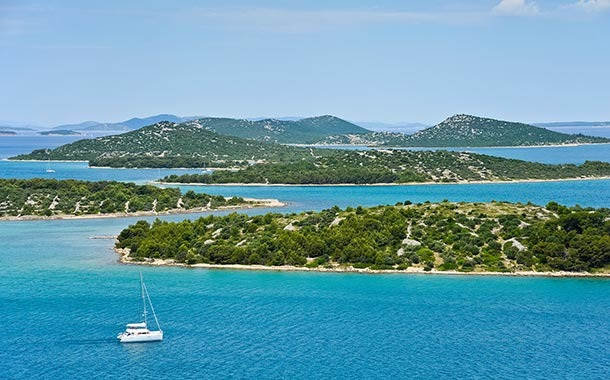Call for papers (2021.1) - Dossier "Questions of Insularity in the Ancient Mediterranean"
The aim of this dossier is to publish research by archaeologists and historians on insularity in its various forms and in its social and cultural manifestations on the islands of the Mediterranean in antiquity. The islands have been studied in the past fifty years by archaeologists, initially with an environmental, diffusionist and migratory approach that looked at them as laboratories or ecosystems of societies and places vulnerable to external influences,[1] but more recently (since the 1990s) with a cultural approach that sees insularity as a construct subject to change over time and the result of human interaction with the islands.[2] Insularity has two main and complementary aspects—isolation and connectivity—in which the sea serves as the defining territory and border of the island.[3] Absolute isolation is an almost unknown phenomenon on Mediterranean islands, though it may have been experienced by island communities in specific situations imposed by the sea and navigation.[4] However, the sea and navigation also transformed islands into bridges, into networks of connectivity and mobility.[5] The differences between islands led to changing local identities as can be read in the archaeological and written records of their communities, which reveal to us how ancient views of insularity were constructed.
This dossier aims to bring together proposals that address how Mediterranean communities defined their cultures and identities through insularity,[6] how the different scales of Mediterranean islands influenced this phenomenon, and how the relationship between islands and the continent and between inland territories and the coast gave rise to island landscapes and diverse types of networks throughout the ancient Mediterranean.
We invite contributions from ancient history, archaeology, literature, and geography dedicated to the study of islands and their communities in the ancient Mediterranean. The Mare Nostrum Journal publishes previously unpublished scientific articles as well as bibliographical essays and reviews for free and links them to thematic dossiers. Information on submission guidelines can be found at: https://www.revistas.usp.br/marenostrum/about/submissions.
Deadline for submitting:
Deadline closed for submissions.
Editors:
Dr. Lilian de Angelo Laky (History Departament, University of São Paulo)
Dr. (des) Erica Angliker (Institute of Classical Studies, School of Advanced Study, University of London).
Bibliography:
BROODBANK, C. An island archaeology of the early Cyclades. Cambridge: Cambridge University Press, 2000.
CONSTANTAKOPOULOU, C. The Dance of the Islands: Insularity, Networks, the Athenian Empire, and the Aegean World. Oxford: Oxford University Press, 2007.
DAWSON, H. Island archaeology. In: SMITH, C. (ed.). Encyclopedia of Global Archaeology. N. York: Springer, 2019.
GORDON, J.M. Insularity and identity in Roman Cyprus: connectivity, complexity and cultural change. In: KOUREMENOS, A. Insularity and Identity in the Roman Mediterranean. Barnsley: Oxbow Books, 2017, p.4-40.
KOUREMENOS, A. Insularity and Identity in the Roman Mediterranean. Barnsley: Oxbow Books, 2017.
________________; GORDON, J.M. Mediterranean Archaeologies of Insularity in an Age of Globalization. Oxbow Books, 2020.
RAINBIRD, P. The archaeology of islands. Cambridge: Cambridge University Press, 2007.
Notes:
[1] Dawson, 2019, p. 2.
[2] Constantakopoulou, 2007, p. 9.
[3] Constantakopoulou, 2007, pp. 3 and 6.
[4] Constantakopoulou, 2007, pp. 3-4; Gordon, 2017, p. 8.
[5] Constantakopulou, 2007, p. 20.
[6] Dawson, 2019, p. 2.

Kornati Archipelago, Croatia (credits: musafir.com).








